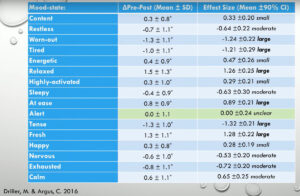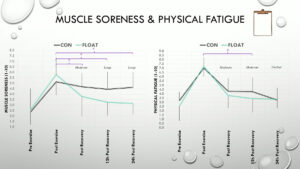As research on floating continues to mature and gain traction in the mainstream, it is accumulating more evidence to support its numerous benefits. Notably, professional athletes are increasingly turning to float tanks as part of their recovery and performance-enhancing routines. At the 2019 Float Conference, Dr. Matt Driller, a leading sports scientist from New Zealand, presented emerging research findings on how float tanks can significantly aid athletic recovery and overall performance. These findings are indeed promising.
Dr. Driller, with over a decade of experience in studying elite athlete recovery, hails from New Zealand—a nation known for excelling in sports despite its small population. In the world of sports, where even the tiniest advantage can make a difference, Driller and his team sought to investigate whether float tanks could provide that marginal gain that distinguishes champions from the rest.
Driller’s first study on the impact of floating on athletes was published in 2016. The study involved 60 members of Australia’s Olympic team, all of whom were already regular floaters. They were evaluated for mood, soreness, and stress markers before and after a single 60-minute float session. The results were remarkable: significant improvements were observed in 15 out of 16 mood factors. Athletes reported feeling less fatigued, less tired, more relaxed, and less tense after their floats, with substantial reductions in muscle soreness.

One particularly intriguing finding was that athletes who fell asleep during the float experienced the most significant mood enhancements. This suggests that combining floating with napping may amplify its benefits. Despite the study’s limitations, such as a small sample size and a focus on psychological effects rather than physical performance metrics, it received considerable attention due to the scarcity of research in this field.
To address these limitations, Driller’s team conducted a more comprehensive trial involving 20 elite team sport athletes. After an intense late-night workout designed to simulate the strains of competition, athletes either floated for 60 minutes or relaxed in a recliner as part of a control recovery group. The study tracked various metrics, including soreness, sleep quality, strength, power, and speed, both immediately after the session and the following morning.
The findings revealed clear physical benefits associated with float recovery. Compared to resting, float recovery resulted in:
- Higher-quality sleep with fewer wakeful moments.
- Up to 24 hours less muscle soreness.
- An increased pressure pain threshold the next day.
- Faster sprint times 12 hours later.
- Enhanced power output in vertical jumps the following morning.

Muscle Sorness & Physical Fatigue
These results indicate that floating can offer tangible performance advantages for elite athletes. Driller highlights the importance of such benefits, stating that reduced pain means quicker readiness to train again, better sleep equates to better restoration, and maintaining speed and explosiveness is critical for back-to-back competitions.
Nevertheless, Driller emphasizes that float tank research is still in its early stages, and many questions remain unanswered. Some of the questions he plans to explore in future research include:
- What happens with regular floating, conducted twice weekly over an extended period? Do the effects accumulate over time?
- How does floating right before and after a competition affect performance and recovery?
- Can in-depth sleep studies reveal changes in sleep stages and quality induced by floating?
- How do the effects of floating compare to other recovery techniques such as cold water immersion, compression, and massage?
Answers to these questions will further refine the best practices for using float pods, in conjunction with other modalities, to enhance athletic performance, especially concerning recovery.
Dr. Driller expresses excitement about the future of float tank research, anticipating that elite sports will continue to explore the boundaries of performance enhancement. He looks forward to gathering more controlled data that can inform both athletes and the general public, moving beyond small-scale studies and anecdotal reports.
For those curious about experiencing floating firsthand, Driller encourages giving it a try, as the profound effects of silent floating, both mentally and physically, may surprise you. Based on the ongoing scientific investigations, float tanks may indeed provide that extra edge to elevate your performance to the next level.



Recent Comments